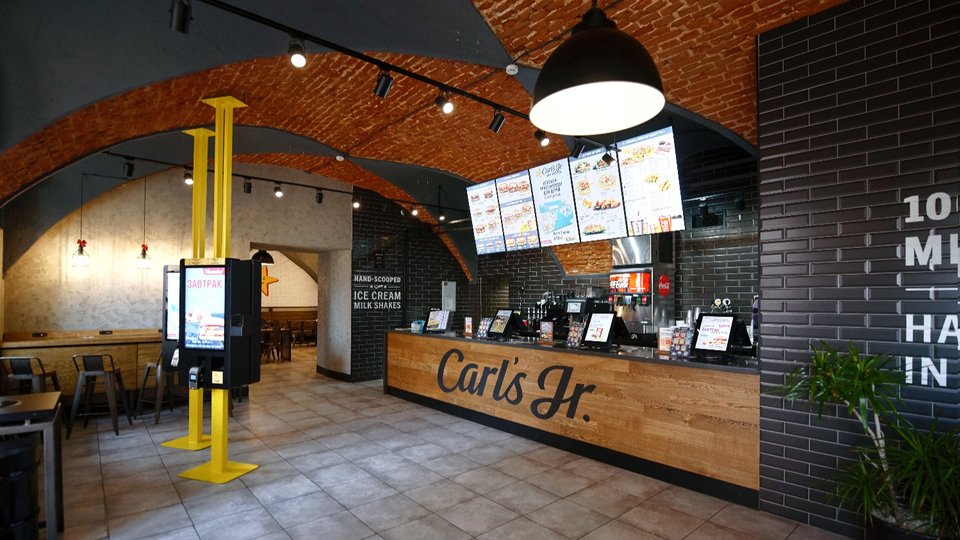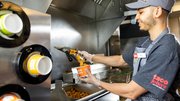Marketing
4 ways to measure effectiveness of restaurant’s marketing campaign
Choosing which methods are right for your restaurant to measure marketing campaigns in order to analyze the data you need can be daunting for any restaurateur. We delve into ways to gauge your marketing plan for maximum effectiveness.

May 31, 2024 by Andrew Glantz — Founder & CEO, GiftAMeal
In the dynamic landscape of restaurant marketing, understanding the impact of campaigns is essential for making informed decisions and driving growth. Restaurants utilize various methods to measure campaign effectiveness, each providing unique insights into customer behavior and preferences.
Choosing which methods are right for your restaurant to measure marketing campaigns in order to analyze the data you need can be daunting for any restaurateur. Let's delve into a range of strategies adopted by different dining establishments, shedding light on the multifaceted ways to gauge the effects of marketing endeavors.
Harnessing payment data insights
Many restaurants recognize the importance of leveraging payment data to evaluate campaign impact. Analyzing payment transactions provides concrete metrics such as increased check size, tip size, visit frequency and more. This quantitative approach offers objective insights into customer behavior and transaction patterns. By integrating marketing efforts with point-of-sale systems, restaurants can seamlessly track the impact of campaigns on key metrics, enabling informed decision-making and strategic optimization of marketing efforts for sustained growth.
Leveraging guest feedback mechanisms
Delivering exceptional guest experiences is a priority for restaurants, and leveraging guest feedback mechanisms is essential for measuring campaign impact. By prompting feedback surveys post-purchase, restaurants can gain insights into customer satisfaction levels. Users participating in marketing campaigns may rate their experiences more positively compared to non-participants, highlighting the tangible impact of campaigns on guest satisfaction and perception. This feedback loop enables restaurants to identify strengths and weaknesses, address customer concerns, and enhance overall dining experiences.
Additionally, customer surveys tailored to campaign participants offer qualitative insights into customer perceptions and preferences. Despite challenges, such as low response rates, surveys provide valuable feedback for strategy refinement. Results can help restaurants understand customer sentiment, identify areas for improvement, and strengthen brand loyalty. By actively soliciting feedback from customers, restaurants demonstrate a commitment to customer engagement and satisfaction, driving long-term success in a competitive market.
Monitoring social media engagement and sentiment
By tracking mentions, likes, shares and comments related to marketing campaigns on platforms like Instagram, Facebook and Twitter, restaurants can gauge customer sentiment and brand perception in real-time. Positive interactions and user-generated content associated with campaigns indicate engagement and brand advocacy, while negative feedback alerts restaurants to areas needing improvement. Analyzing social media metrics alongside other data sources offers a comprehensive view of campaign impact, enabling restaurants to refine strategies, enhance customer experiences and foster brand loyalty in the digital age.
Utilizing redemption and coupon code data
Restaurants can measure the effectiveness of marketing campaigns by tracking redemption rates and coupon code usage associated with promotional offers. By assigning unique coupon codes or tracking redemption through loyalty programs, restaurants can directly attribute sales and customer acquisitions to specific marketing initiatives. Analyzing redemption data allows restaurants to assess the success of different campaign channels, offers and messaging strategies. Moreover, it provides insights into customer behavior, such as purchase frequency and average spend per transaction. By leveraging redemption and coupon code data, restaurants can optimize future campaigns, allocate marketing budgets effectively and drive measurable results that contribute to business growth.
The diverse array of methods available for measuring the effectiveness of marketing campaigns empowers restaurants to make informed decisions and drive sustainable growth in an increasingly competitive industry landscape. By integrating multiple measurement strategies and analyzing data comprehensively, restaurants can refine marketing strategies, enhance customer experiences and build lasting relationships with customers. As restaurants continue to navigate the evolving marketing landscape, investing in robust measurement practices will be essential for staying ahead of the curve and achieving long-term success in the dynamic world of restaurant marketing.
About Andrew Glantz
Andrew Glantz is the Founder & CEO of GiftAMeal, a cause-marketing platform for restaurants that has provided nearly 2 million meals to those in need through its novel “food for photos” concept. Now with over 900 partner restaurants across QSR, fast-casual, and full service brands, Glantz and his creation, GiftAMeal, have become recognized as major forces for good by hospitality industry and hunger-relief organizations alike, receiving the Industry Hero Award by Hospitality Technology and winning 1st Place at the Global Impact Awards.
 ChatGPT
ChatGPT Grok
Grok Perplexity
Perplexity Claude
Claude








